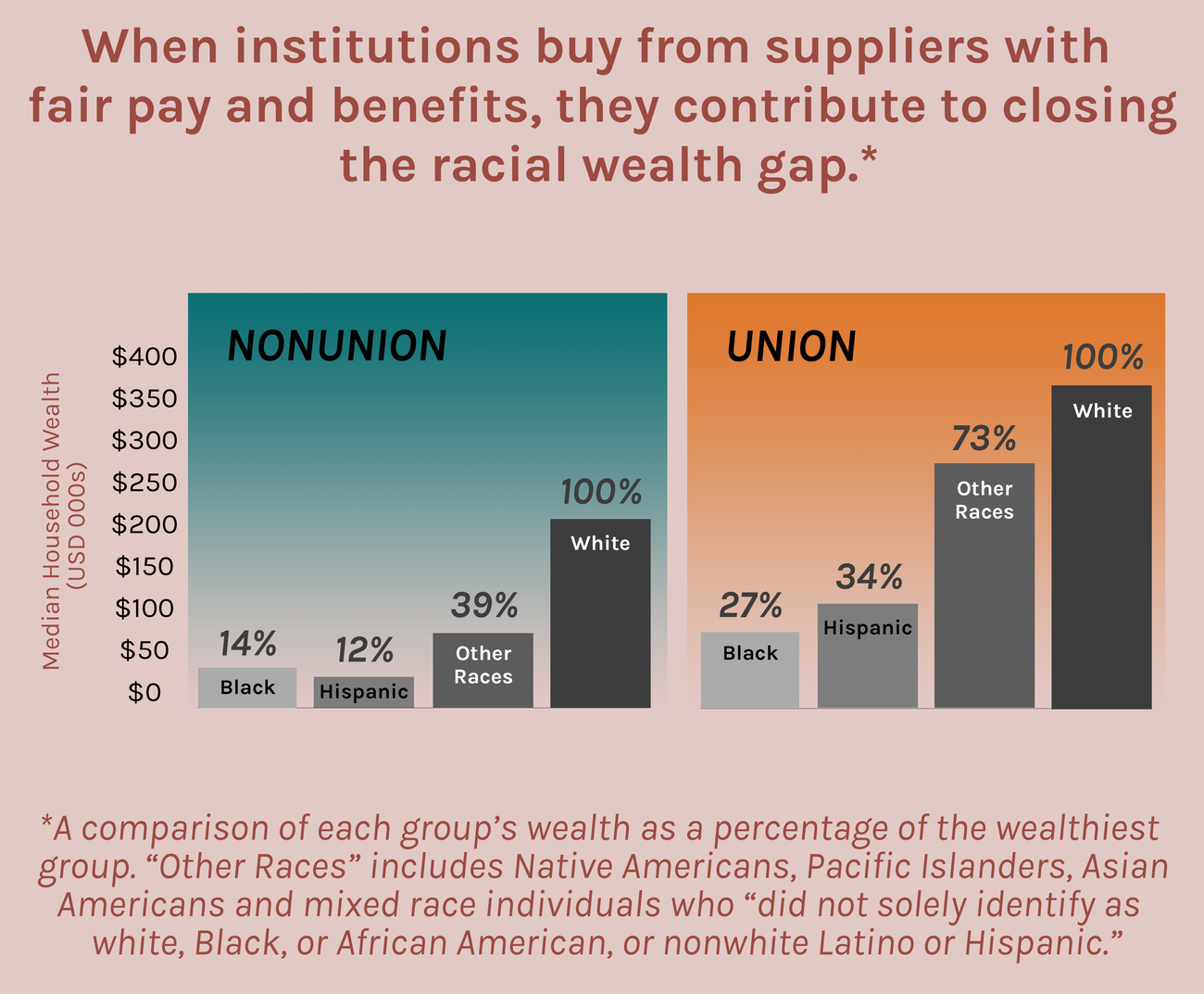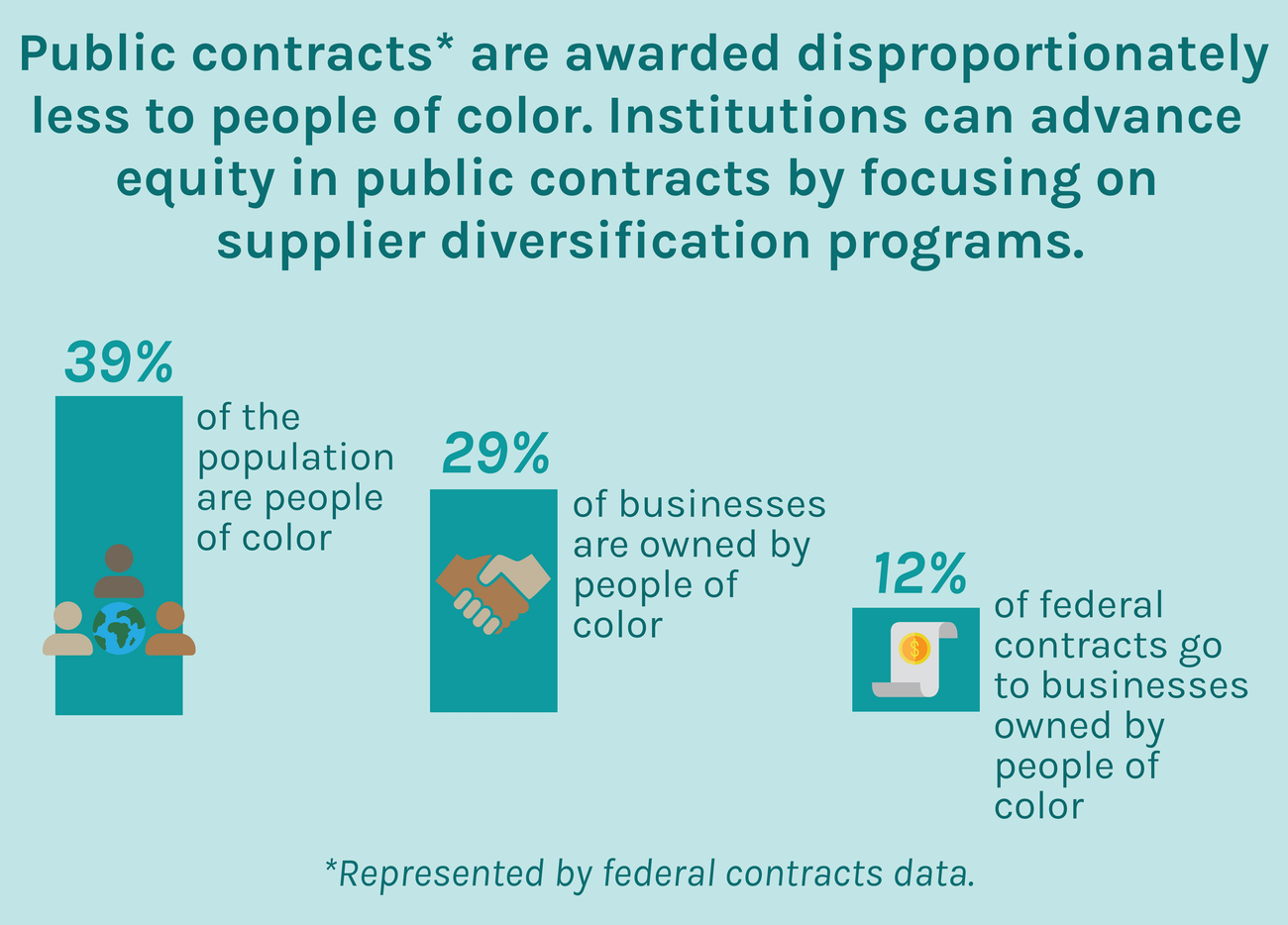Advance Equity, Accountability, & Transparency

Advancing the five Good Food Purchasing values requires commitment to an essential set of principles — equity, accountability, and transparency — to ensure community is at the center of food policy decisions. Building an equitable food system requires full community access to food, land, information, and decision-making power. Transparent processes allow communities to engage with institutions in setting food justice goals, hold them accountable to meeting them, and celebrate successes as institutions increasingly use their public dollars to serve the public good.
Strategies

Establish specific goals for race and gender equity in purchasing
Consistent reporting on progress toward supplier diversity goals fosters accountability and public engagement.

Include local stakeholders in policy decisions
Community involvement helps ensure policies will meet the needs of workers, consumers, producers, and local organizations.

Require transparency language in supplier contracts
Greater supply chain transparency enables institutions and municipalities to track and share progress toward their goals.
Impacts

Source: Center for American Progress. See methodology for details.

Source: National Equity Atlas. See methodology for details.
More impacts:

Investing in businesses owned by people of color creates more jobs and generates economic activity in communities of color.

Gender and racial disparities in farmland ownership and market opportunity can be addressed with comprehensive research and policy change.

Food sovereignty—allowing people to define their own food systems—has the potential to improve community and individual health
Real-World Examples
Learn about more ways to advance good food policies in your community.


